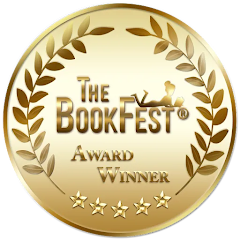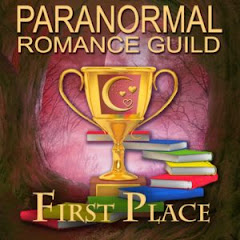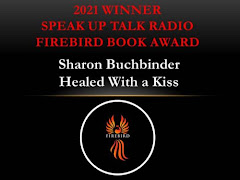What made you
decide to be an author? I always wanted to be a writer—from early
childhood, honestly. Starting about the time I read Jane Eyre (age 8--in an attempt to keep up with a very dear older
cousin) I was completely smitten with the written word and lost in the world of
books. I taught myself to type for the first novel I wrote (age 10); it
involved twins (a lifelong obsession) who were detectives and it was 64
chapters (also 64 pages). I’m thrilled to say it’s disappeared along with its
title, since even at that age I knew it wasn’t any good. That experience taught
me to fearlessly let go of mediocre work; it also fueled my enthusiasm to keep
writing and to strive for excellence.
What do you like
best about being a writer? What do you like the least? I love the
experience of creating something that never existed before, and the sense of
being so caught up in what I’m writing, that time—as minute by minute
reality—literally vanishes. It’s a great antidote to the aging process. I’m
kidding, of course, but I do believe I feel “most alive” while I write.
I dislike all the public relations work one has to do in
order to promote one’s work. I find it awkward and worrisome and it frequently
cuts into my writing time. It looms larger than life (in my imagination, at
least) and it often feels as though it’s literally hanging over my head—an ugly
chore like going to the dentist or standing in line at the DMV: it must be
done, but it makes you feel a little resentful--especially if you start
thinking of all the truly pleasant (by comparison) things—like laundry or
weeding the garden--you could be doing…. Book signings, for example, are
enjoyable, but calling book stores to set them up is not—oh well, you get what
I mean.
How do you think your life experiences have prepared you for writing?
Well, my mother was an operating room nurse and later, a public health
director, so there are always a lot of medical “issues” in my work because her
true life stories both terrified and fascinated me. On a personal level, going
for my graduate degree in 18th and 19th century English
literature taught me a great deal about research, which I really enjoy.
Have you ever felt as if you were being dictated to while you wrote a
book--as if the words came of their own accord? If yes, which book did that happen with? Yes, THE NEW ADVENTURES OF
TOM SAWYER and HUCK FINN seemed to write itself—it was also the most fun to
write, partly because I’m an animal lover and the premise of this light-hearted
book is that twin cats (Tom and Huck) are reincarnated as the familiars to a
witch.
You’ve written 4 books and numerous short stories, and are working on a
5th novel. What’s your favorite time management tip? Be pleasant (but firm)
about it, and turn off the phone—once your friends and family get used to
speaking with you when you’re finished writing for the day or evening, you’ll
find without those interruptions you get a lot more done! People may be
well-intentioned, but unless they’re writers, they seldom realize that a five
second interruption can cost you an hour trying to get back to where you were
when your train of thought was derailed. (And while you’re at it, turn off your
cell phone, email and social networks—“visit” with your near and dear only when
you’re taking a break.)
Are you a plotter or a pantser, i.e., do you outline your books ahead
of time or are you an “organic” writer? I definitely don’t outline in the
standard way we’re all taught, but I do make notes (both before I begin and
while working) and I generally see where the book is heading long before the
halfway mark. My process works best when the element of surprise (for the
reader, but also for me as the writer) is a factor—and by being open to the
characters and the book, I’ve gotten some really wonderful material that might
not have otherwise been there if I’d proceeded in a step-by-step logical
fashion. My mother claims I worked that way even as a kid—that when she called
me up after a school I’d tell her, “I have to hang up now, because I’m writing
a story and I can’t wait to see how it ends.”
If you had one take away
piece of advice for authors, what would it be? Don’t underestimate the
importance of doing research. Over time I’ve discovered that research can be one
of your strongest allies—both in terms of character development and plot points
you may not have thought of. Don’t be
afraid to research on the fly—I’ve had to look things up even as I was writing
the last sentence of some works, and if you need to know something small
details can help mightily when it comes to creating verisimilitude: the
wonderful made-up world you want your readers to enter completely.
Did music help you find your muse with this book? If yes, which song
did you find yourself going back to over and over again as you wrote? I might listen to music
before I start the day’s work, but I never listen while I’m actually writing
because I “hear” what’s happening first, and then I see it. Noise of any kind
distracts me and, in fact, can drive me crazy—especially when the leaf
blower/lawn mower brigade shows up and takes over the neighborhood. It’s a form
of torture for me that makes me actually welcome blizzards—right up to the
second they stop, and people haul out their snow blowers…..
Tell me more about The Box Jumper.
“Magic is the operative word for this moody novella. The
magic of Harry Houdini serves as an overriding backdrop here, but another kind
of magic permeates these pages – the magic of fine writing....Read The Box Jumper and share the magic.” --William
F. Nolan (author of Logan’s Run and
screenwriter, Burnt Offerings)
“Lisa
Mannetti's blend of meticulous research and melodic prose brings gut-wrenching
reality to The Box Jumper, a tale of
deceit, madness, and murder. As believable as it is incredible, Mannetti's
historical fiction will leave you breathless and wanting more." –Patrick
Freivald, Bram Stoker Award®-nominated author of Jade Sky
"Seamless delving
into the minutia of the period, a compelling main character, and a fine love
story in a surround of trickery, fakery and darkness." -- Jack
Ketchum, author of Off Season
How about an excerpt from THE BOX JUMPER?
It was the
children who brought Houdini back. The ones who were dead or missing. He never
had any of his own, but he loved children—made sure there were always free
performances at hospitals and orphanages. Once, in Edinburgh, he saw so many
kids running barefoot through the streets he even bought 300 pairs of shoes for
them and fitted them up at his benefit show at the Lyceum. That’s the kind of
man he was. He was magical all right—so much so, I think I loved him before I
ever met him—back when I was just a kid myself.
He was always
in the headlines, but the day I’m thinking of—when I first fell in love with
him—was bitterly cold here, one day past the ides of March, not even the barest
hint of spring in the air. Houdini had just become the first aviator in
Australia. My father, like half the men in America and Europe, was fascinated
by flying. But Harry wasn’t content to read about aeronautics or merely watch
newsreels. He bought a Voisin and hired a mechanic and an instructor,
essentially taught himself in a matter of weeks then took to the skies. I can
still hear my father gushing over the morning newspaper, “Imagine that. Here’s
the guy—world famous—the king of handcuffs, the greatest escape artist of all
time, and he just plunks down some money, gets him a bi-plane and zoom! He’s
airborne. It’s unbelievable. What a man!” He smacked the newspaper with the
back of his hand for emphasis, folded over the page so I could read it. I could
hear the wind gusting outside through the thin panes of glass in the kitchen
windows, smelled snow on the air. I kept thinking about swirling updrafts and
cross currents on the trackless field near Melbourne.
Then my father,
slightly chagrined, finished lacing his heavy boots, stood to down the last of
the cheap coffee-milk that was his breakfast, swiped at his dripping mustache
with a frazzled sleeve, and shouted he was late for work at the factory.
Still, I never
forgot that note of joy and exaltation in his voice, the brilliant gleam in his
eyes. For one brief moment, he was a boy again; a boy who still had dreams of
flight and freedom. I knew he’d never be rich or famous, but I was glad he
wasn’t bitter, glad he could find a tiny sparkling bit of magic by reading
about his hero. My hero, from then on, too.
I’d been born
with the turn of the century and back in those days, those of us who led narrow
trapped lives often filled the hollows created by the grind of poverty with
imagination, with care-wrought scrapbooks and news clippings, glimpses of other
more colorful worlds on painted posters and lithographs. I dreamed about
travelling magic shows, spangled girls and top-hatted men who wore black capes
and vanished amid purple vapors and gouts of yellow flame. Dreamt about
conjurors’ mysteries till, wandering one day past Martinka’s on Sixth Avenue, I
saw the sign in the window: Help Wanted.
Where can readers find
more about your stories, books and you on the Internet?
Website Links:
Lisa, thank you so much
for being with us here today. I know my readers will enjoy your work and your
interview.

















































